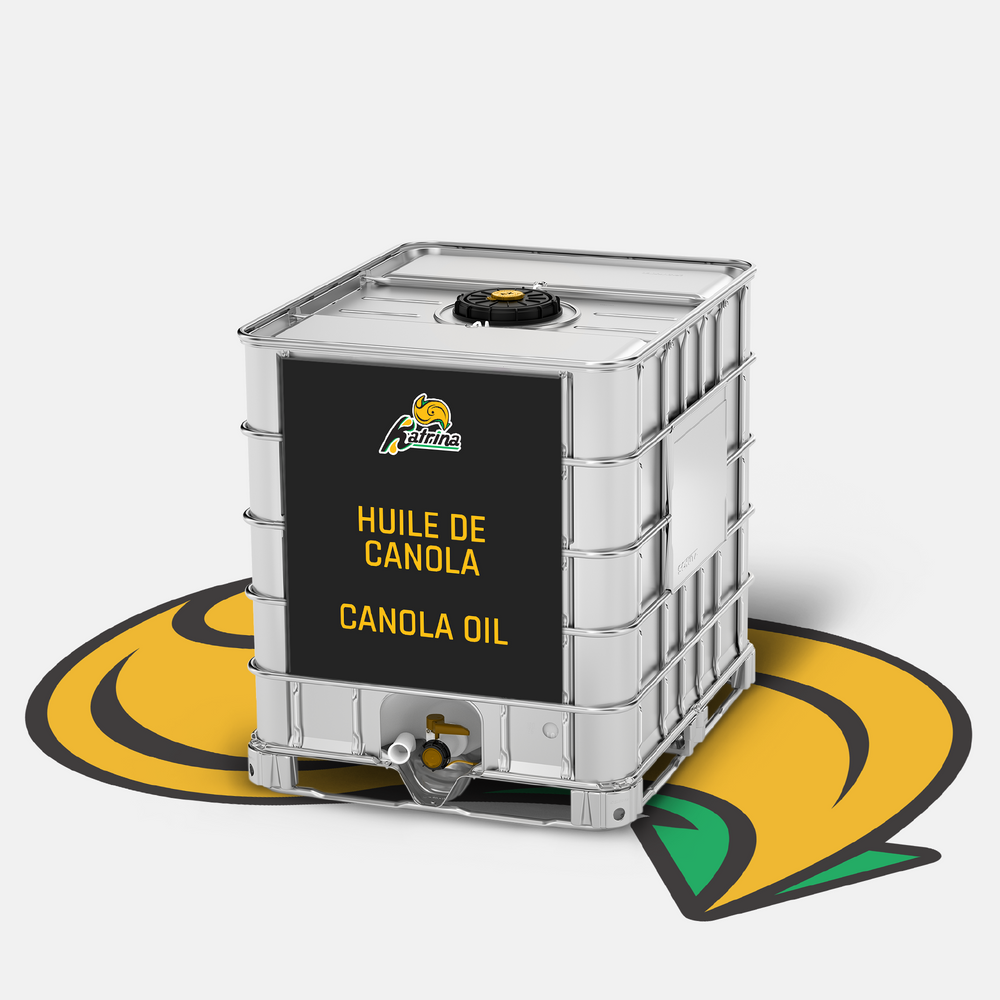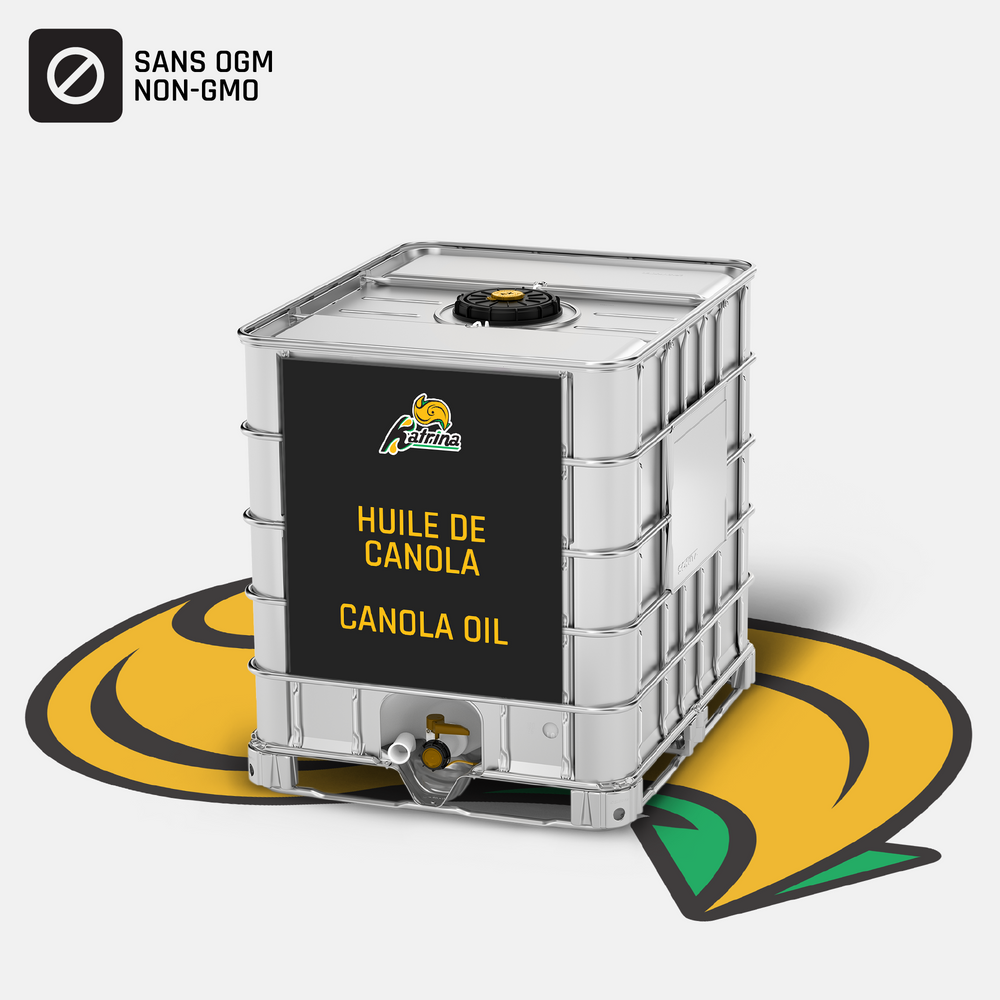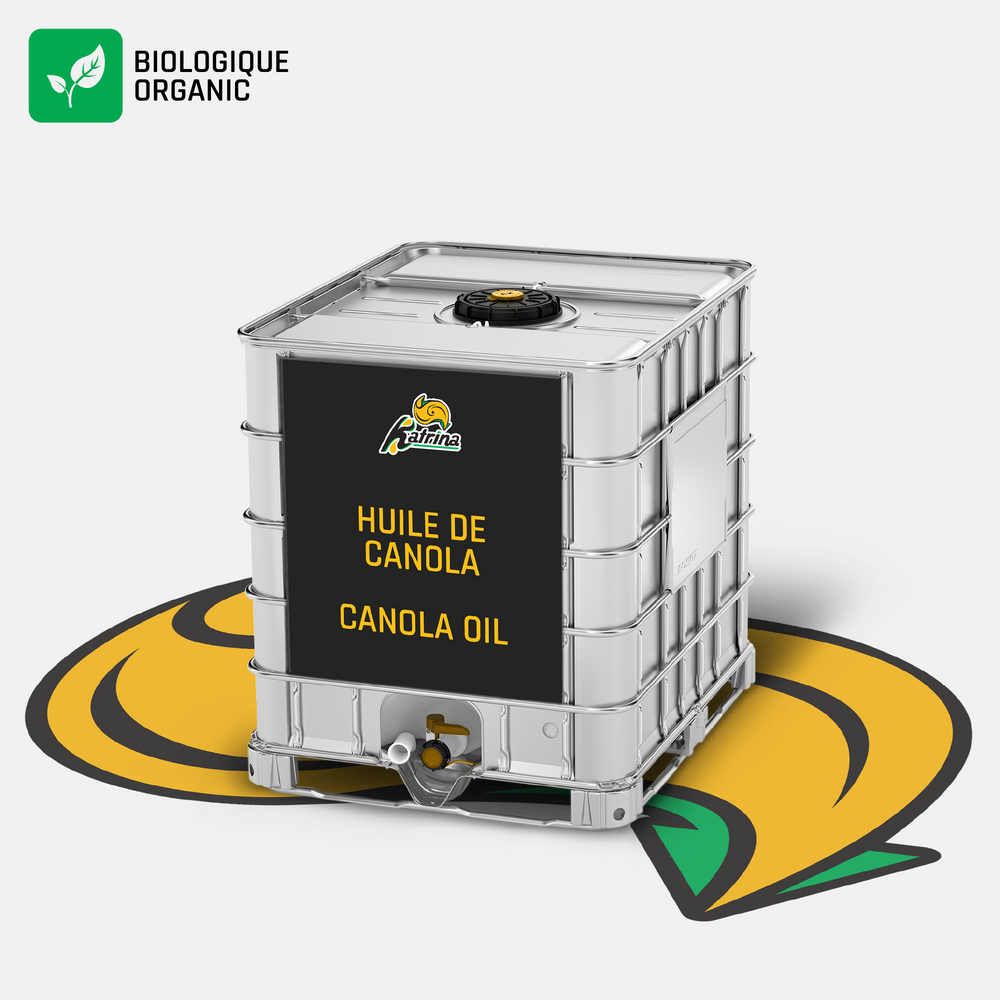Coconut Oil vs Canola Oil: Comparison & Substitutions
Coconut oil and canola oil are common in many kitchens. Each oil is known for its unique qualities and health benefits. While both oils provide dietary fats, they have different nutritional contents. This makes us wonder which one is healthier and how they work in cooking. Let’s look at the features, advantages, and disadvantages of coconut oil and canola oil.
How Coconut Oil and Canola Oil Are Made?
The production of coconut oil involves extracting the oil from the white flesh of mature coconuts through methods such as cold-pressing or fermentation. These processes play a crucial role in determining the quality and properties of the final product. Refined coconut oil, for example, undergoes bleaching and deodorization which strips away some of the naturally occurring beneficial compounds found in virgin coconut oil.
On the other hand, virgin (or unrefined) coconut oil is cold-pressed from fresh coconut meat without using high heat or chemicals. Because this method preserves its natural aroma, delicate flavour, and nutritional integrity, virgin coconut oil is usually seen as being of higher quality.
Canola oil is extracted from a variety of rapeseed known as “canola”. The production process begins with the extraction of oil from canola seeds, which is typically done through expeller-pressing. Next, the crude oil is refined to remove impurities and enhance its quality. In colder climates, canola oil undergoes a winterization process to remove waxes that can cause cloudiness/solidification at lower temperatures. Finally, the refined canola oil is packaged and ready for distribution.
Health Benefits
Coconut oil and canola oil offer a range of health benefits that are quite different from one another. Each oil has its own unique properties and nutritional profiles that can impact health in various ways.
Canola oil is well known as a heart-healthy oil due to its low levels of saturated fat and high levels of monounsaturated and polyunsaturated fats. It provides a favourable balance of omega-3 and omega-6 fatty acids, which are associated with a decreased risk of heart disease. Canola oil is particularly rich in alpha-linolenic acid (ALA), an essential omega-3 fatty acid which is crucial for heart health, brain function, and inflammation management. Additionally, organic canola oil is high in vitamin E, a powerful antioxidant that helps protect cells from damage caused by free radicals. Moreover, organic or non-GMO varieties of canola oil offer the added benefits of natural and unaltered ingredients, following strict guidelines to ensure the absence of genetically modified organisms and synthetic pesticides.
Coconut oil, on the other hand, stands out for its high saturated fat content, with approximately 90% of the oil made up of saturated fatty acids and very few vitamins or minerals. While coconut oil contains predominantly saturated fat, its main saturated fatty acid, lauric acid, a medium-chain fatty acid, is touted for its potential antimicrobial and antiviral properties. Proponents believe that lauric acid may offer health benefits by boosting good cholesterol levels and supporting immune function. Coconut oil also contains medium-chain triglycerides (MCTs), which have been shown to increase metabolism rate. There are a number of other health benefits associated with coconut oil, like antifungal, antibacterial, and anti-inflammatory qualities, making it a highly versatile product.
Beyond culinary uses, it’s popular in hair and skincare for its moisturizing properties. Its antimicrobial qualities enhance its effectiveness in natural beauty products and oil pulling for oral health. Additionally, it can be used as a healing ointment for minor cuts and skin irritations. From homemade scrubs and conditioners to dietary supplements, coconut oil continues to find its place in both daily routines and holistic wellness practices, proving to be a true multi-tasker in modern lifestyles.
Which is Healthier, Coconut Oil or Canola Oil?
Coconut oil and canola oil each provide distinct health benefits. Coconut oil is rich in saturated fats, which can raise LDL cholesterol levels, though it may provide some advantages due to its medium-chain triglycerides (MCTs). Canola oil, in contrast, has a lower saturated fat content and is high in heart-healthy unsaturated fats, making it the generally healthier option.
Overall, while canola oil is generally considered the healthier option due to its favourable fat profile, both oils can be used in moderation and offer unique flavours and properties for different culinary applications.
Flavour Profiles
Coconut oil and canola oil differ greatly in flavour and culinary application.
- Coconut oil has a distinct coconut flavour and smell and works exceptionally well in sweet and savory dishes, particularly in Southeast Asian and Indian cuisines.
- In contrast, canola oil offers a neutral flavour profile. Its mildness allows the flavours of other ingredients to stand out, making it a versatile option for a variety of different applications.
In the end, whether you choose coconut oil or canola oil depends on the flavour you want for your meals.
Smoke Points
The smoke point of cooking oil is the temperature where it starts to break down and can release harmful compounds. Using an oil beyond its smoke point not only compromises its flavour but also releases potentially harmful compounds that can be detrimental to health. Choosing an oil with a suitable smoke point is crucial, especially for high-heat cooking methods like deep frying and searing.
- Canola oil boasts a high smoke point of around 400°F to 475°F, making it a great option for cooking methods involving high temperatures like frying or broiling.
- Coconut oil generally has a smoke point of around 350°F and is better suited for medium-heat cooking like baking and sautéing.
Comparing the Cost of Coconut Oil vs. Canola Oil
When considering cost-effectiveness, canola oil often emerges as a more budget-friendly option for consumers seeking a cooking oil that balances price and quality. Coconut oil tends to be more expensive than canola oil due to various factors like production costs, demand-supply dynamics, and the labor-intensive process of extracting oil from coconuts.
Understanding these cost differences can help you make informed choices when selecting between these two oils.
Which One Is Better?
In conclusion, understanding the differences between coconut oil and canola oil enables you to make informed choices tailored to your health needs and culinary preferences. Coconut oil offers various health benefits and is excellent for adding flavour to many dishes, while canola oil is favoured for its neutral taste, high smoke point, and heart-healthy properties. While canola oil is generally more economical for everyday cooking and baking, personal preferences and nutritional requirements should guide your selection of cooking oils.
Whether you opt for the tropical essence of coconut oil or the versatility of canola oil, using both thoughtfully in your kitchen allows you to create delicious and healthy meals that suit your lifestyle. Ultimately, the best choice is the one that aligns with your individual needs and enhances your culinary experience.













